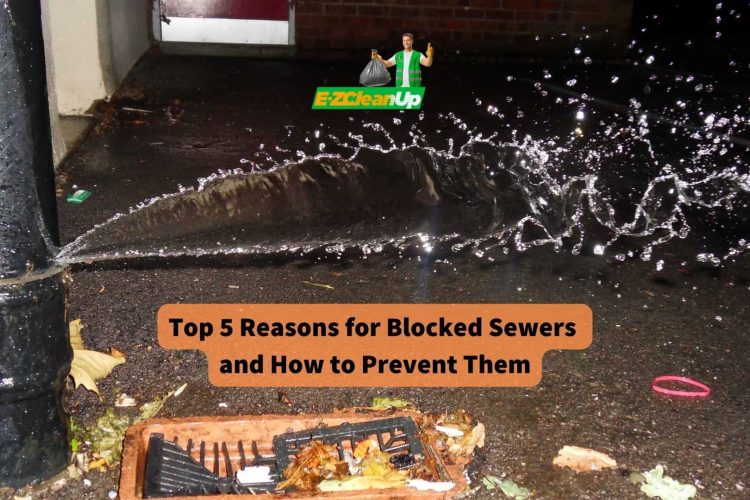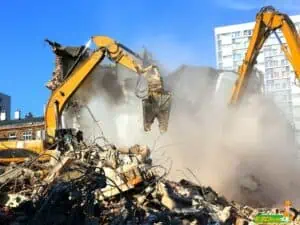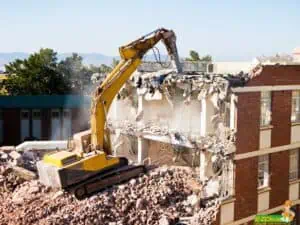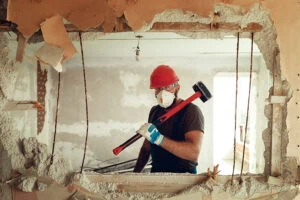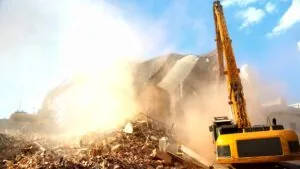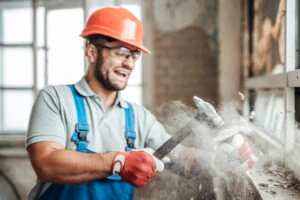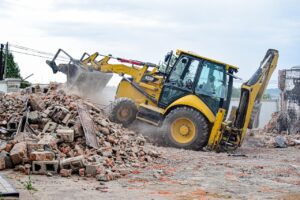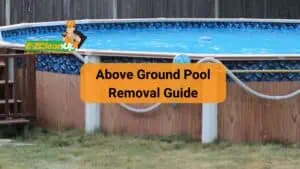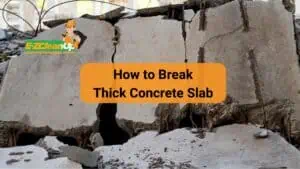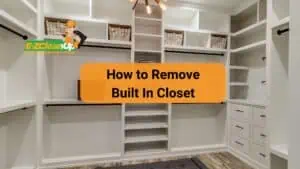Blocked sewers can cause serious problems in your home. The top five reasons for these blockages are grease and fat build-up, foreign objects, tree roots, aging pipes, and heavy rain. To prevent them, avoid pouring grease down the drain, dispose of waste properly, check for tree roots, maintain pipes, and prepare for heavy rain.
To learn more about each cause and how you can effectively prevent sewer blockages, keep reading for detailed insights and practical tips from a blocked sewer plumber.
#1 5 Common Causes of Blocked Sewers
Understanding the common causes of blocked sewers can help you take the necessary steps to prevent them. Here are the top five reasons why sewers get blocked and what you can do to avoid these issues.
1. Grease and Fat Build-Up
Why Grease and Fat Cause Blockages
When you pour grease and fat down the drain, they can solidify and stick to the sides of the pipes. Over time, this build-up narrows the pipes and eventually leads to blockages.
How to Prevent Grease Build-Up
To prevent grease build-up, avoid pouring cooking grease, fat, or oil down the drain. Instead, let them cool and dispose of them in the trash. You can also use paper towels to wipe greasy pans before washing them.
2. Foreign Objects and Debris
Common Items That Cause Blockages
Foreign objects like sanitary products, wet wipes, and food scraps can easily cause blockages. Even items labeled as “flushable” can contribute to the problem.
Tips for Proper Disposal
To prevent blockages, never flush anything other than toilet paper down the toilet. Use a waste bin for items like wipes, sanitary products, and food waste. In the kitchen, use sink strainers to catch food scraps before they go down the drain.
3. Tree Roots Infiltration
How Tree Roots Invade Sewers
Tree roots naturally seek out moisture and nutrients, and they can find their way into your sewer pipes through tiny cracks. Once inside, they grow and expand, causing blockages and damage.
Preventative Measures for Tree Root Intrusion
Regularly inspect your sewer lines for signs of root intrusion. If you have trees near your sewer lines, consider having a professional plumber use a root barrier or remove problematic trees to prevent wastewater blockages. Regular maintenance can help catch issues early before they become major problems.
4. Aging or Damaged Pipes
The Impact of Old and Damaged Pipes
Pipes that are old, corroded, or damaged are more prone to blockages. As pipes age, they can crack, collapse, or become misaligned, leading to blockages and leaks.
Maintaining and Replacing Aging Pipes
Regularly inspect and maintain your pipes to extend their lifespan. If you have older pipes, consider having them inspected by a professional and replaced if necessary. Modern materials are more durable and less likely to cause problems.
5. Heavy Rain and Flooding
How Excess Water Causes Blockages
Heavy rain can overwhelm your sewer system, especially if the drainage system is not designed to handle large volumes of water. Flooding can also bring debris into the sewers, leading to blockages.
Preventive Measures for Flooding
To prevent blockages caused by heavy rain, ensure your property’s drainage system is well-maintained and free of debris. Consider installing backflow prevention devices to stop floodwater from entering your sewer system. Regularly clean gutters and drains to keep them clear.
#2 Burst Pipes and Emergency Blocked Drains: What You Need to Know
Blocked drains and burst pipes can quickly escalate into emergencies that require immediate attention. Understanding the urgency and consequences of these issues can help you respond effectively.
Are Blocked Drains an Urgent Issue?
Yes, blocked drains can indeed be an urgent issue, particularly if water or sewage begins to back up into your home. This can lead to water damage, unpleasant odors, and potential health hazards. If you notice slow drainage, gurgling sounds, or water pooling around drains, it’s crucial to address the issue promptly to prevent a full blockage and subsequent emergency.
What Are the Consequences of a Burst Pipe?
A burst pipe can cause significant damage in a short amount of time. Here’s what can happen:
- Flooding – Water can quickly flood your home, damaging floors, walls, and belongings.
- Water Damage – Prolonged exposure to water can weaken structures and lead to mold growth.
- High Repair Costs – Repairing water damage and fixing burst pipes can be expensive and time-consuming.
When a pipe bursts, it’s essential to shut off the water supply immediately and contact a plumber for emergency repairs. The faster you act, the less damage you’ll face.
Additional Consequences
- Electrical Hazards – Water from a burst pipe can come into contact with electrical wiring, posing a risk of electrical shocks or fires.
- Sanitation Issues – If a sewage pipe bursts, it can lead to contamination and health risks from exposure to raw sewage.
- Loss of Water Supply – A burst pipe can disrupt your water supply, making it impossible to use faucets, showers, or toilets until the issue is resolved.
Steps to Take if a Pipe Bursts or a Drain is Blocked
- Turn Off the Water Supply – Locate your main water shut-off valve and turn it off to prevent further flooding.
- Contact a Professional – Call a professional sewer plumber and a house cleanout service to assess, repair, and clean up the damage. They can provide emergency services to address the immediate issue and prevent further problems.
- Mitigate Damage – Move valuables and furniture away from the affected area to minimize damage. Use towels or buckets to manage the water until help arrives.
#3 How to Prevent Sewer Blockages
To keep your sewer system running smoothly and avoid blockages, consider these additional strategies beyond routine maintenance and proper waste disposal:
Avoid Chemical Drain Cleaners
Refrain from using chemical drain cleaners as they can damage pipes over time and may not effectively clear blockages. Opt for natural solutions or professional help instead.
Monitor Tree Growth
Keep an eye on tree roots near your sewer lines. If you notice any trees with invasive roots, consider having them trimmed or using root barriers to prevent root intrusion.
Use Enzyme Cleaners
Regularly use enzyme-based drain cleaners to break down organic material in your pipes. These are gentle on pipes and can help keep your drains clear.
Educate Household Members
Ensure everyone in your household knows what should and shouldn’t be flushed or poured down the drain. Educating family members helps prevent accidental blockages caused by improper disposal.
Install a Backwater Valve
If you live in an area prone to flooding, installing a backwater valve can prevent sewage from backing up into your home during heavy rains.
#4 FAQs
How often should I have my sewer lines professionally inspected?
It’s a good idea to have your sewer lines inspected by a professional plumber every 1-2 years. Regular inspections help catch potential issues early and ensure that your sewer system remains in good condition.
Can I use a home remedy to clear a sewer blockage?
While some home remedies like baking soda and vinegar may help with minor clogs, they are often not effective for serious sewer blockages. For major issues, it’s best to consult a professional plumber who has the tools and expertise to address the problem thoroughly. Understanding the common causes of drain clogs can also help homeowners prevent future plumbing issues before they become severe.
What should I do if I smell sewage in my home?
If you detect a sewage smell in your home, it could indicate a serious issue with your sewer system. Check for visible leaks or blockages and ensure that all drains are properly sealed. Contact a professional plumber immediately to diagnose and fix the problem to prevent potential health risks and damage.
#5 The Bottom Line
Blocked sewers and burst pipes can lead to serious problems like water damage and health risks. By knowing the common causes—such as grease build-up, foreign objects, tree roots, aging pipes, and heavy rain—you can take steps to prevent these issues. Regular maintenance and proper waste disposal are key.
In emergencies, such as a burst pipe or severe blockage, turn off the water, contact a plumber, and try to minimize damage. For additional help, consider reaching out to cleanout services to manage any water damage. This will help protect your home and keep your plumbing system in good shape.

